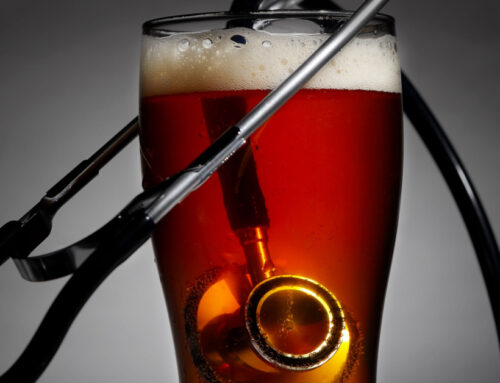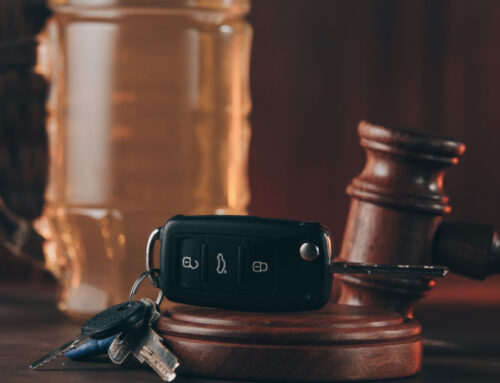Find Out What to Expect after Getting Arrested for Drunk Driving in Arizona from Our Tempe and Phoenix DUI Lawyers
If you get arrested for driving under the influence (DUI) in Arizona and your blood alcohol concentration (BAC) according to a breath or blood test exceeds 0.08 percent (or if you refuse to submit to the test in violation of Arizona’s implied consent law), there is an excellent chance that your privilege to drive in Arizona will be suspended. The question is what kind of suspension you will receive: the type that doesn’t come into effect until you have a fair chance to fight your DUI charge or the kind that takes effect automatically before your case goes to trial.
You Must Request an MVD Hearing To Avoid Losing Your Driving Privileges
If you blew 0.08 or more, you should have received a form that advised you that your privilege to drive in Arizona would automatically be suspended in 15 days unless you requested an administrative hearing with the Arizona Motor Vehicle Division (MVD). At this point, requesting an MVD hearing is the only way to avoid or mitigate the automatic suspension of your privilege to drive in Arizona due to your DUI arrest. If you properly request a hearing within the 15-day time window, the suspension will not go into effect, if at all, until your MVD hearing is resolved.
In almost all DUI cases in Arizona, the MVD, not the Court, is responsible for administering the defendant’s driver’s license suspension. The MVD also determines when a defendant is permitted to drive with the utilization of an ignition interlock device. Of course, merely requesting a hearing does not protect your privilege to drive in Arizona on its own (aside from delaying the automatic suspension). To maintain your driving privileges, you will need to hire a defense lawyer to represent you at the administrative hearing.
The same applies if you refused the breath or blood test (referred to as an “implied consent violation”), although the automatic driver’s license suspension period is longer. If you refused to consent to a BAC test, your privilege to drive in Arizona would automatically be suspended for one year with a chance to drive for the last nine months of that period with an ignition interlock device unless you successfully challenge the suspension at your MVD hearing.
How Does the Outcome of My MVD Hearing Impact My Criminal DUI Case?
If you request an administrative hearing at the MVD, how will the outcome of your hearing impact the criminal portion of your DUI case? The answer is simple: It won’t. The MVD hearing is an entirely separate matter from the criminal prosecution of your DUI charge. You can beat the suspension at the MVD and then lose the DUI case at trial. Likewise, it is possible to fail to protect your privilege to drive in Arizona at your MVD administrative hearing and then win your DUI case in criminal court.
But, unless you can afford not to drive for any period of time, requesting an MVD administrative hearing is still extremely important. While you can present several defenses at your hearing to protect your privilege to drive in Arizona, to present these defenses effectively, you will need to hire an experienced defense attorney to represent you before the MVD. Additionally, although the outcome of your administrative hearing will not impact your criminal case directly, it is possible that your statements during the administrative hearing could be used against you in court. So, while the MVD hearing is an “administrative” rather than “criminal” process, it is still extremely complicated and can even have significant legal ramifications, and, to protect yourself, you need to have an experienced defense attorney on your side.
What is the Burden of Proof in an MVD Administrative Hearing?
Another critical aspect of the MVD administrative hearing is that it is a civil proceeding. This means that the burden of proof is not “beyond a reasonable doubt” but instead “by a preponderance of the evidence.” As a result, the administrative law judge presiding over the hearing only needs to be 51 percent convinced that you were driving under the influence to uphold a suspension.
Even so, as we mentioned above, there are still several potential ways to defend your privilege to drive in Arizona during an MVD hearing. For example, your attorney may be able to successfully argue that the Intoxilyzer 8000 device (commonly known as the “breathalyzer”) was not properly calibrated or that the police officer improperly interpreted your performance on the field sobriety tests. These are just two of the numerous possible examples. When you meet with your attorney in advance of your MVD hearing, your attorney will ask you lots of questions and begin gathering information from other sources to determine what types of defenses you may have available.
Can I Still Drive if the Arresting Officer Confiscated My Driver’s License?
When the arresting officer gave you the form we mentioned above, he or she may have also confiscated your driver’s license. But, as we mentioned above, if you request an MVD hearing, you are still allowed to drive while your hearing date is pending. This is because the form you received effectively acts as your temporary license during this time. Additionally, once the MVD receives your hearing request, it will send you a formal letting notifying you of your hearing date and indicating that your driver’s license suspension has been “stayed.” To avoid getting arrested for driving without a license, you should keep both of these documents in your vehicle at all times.
Speak with a Phoenix DUI Attorney about Protecting Your Driver’s License
If you have been arrested for driving under the influence in Phoenix and Tempe AZ, we encourage you to contact us promptly so that our DUI attorneys can fight to protect your driver’s license at your MVD administrative hearing. To get started with a free and confidential consultation, call 480-405-7922 or tell us how to reach you online now.






